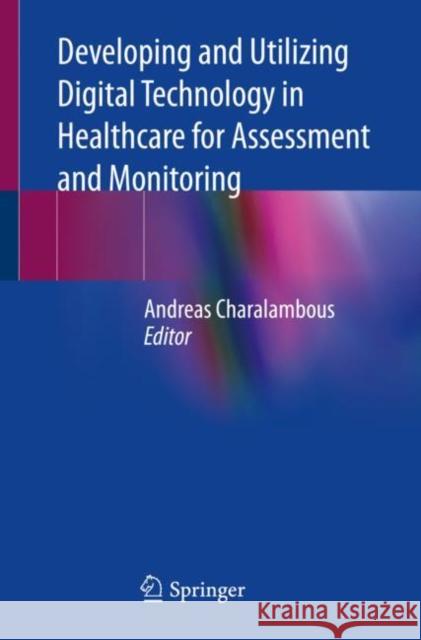Developing and Utilizing Digital Technology in Healthcare for Assessment and Monitoring » książka



Developing and Utilizing Digital Technology in Healthcare for Assessment and Monitoring
ISBN-13: 9783030606961 / Angielski / Miękka / 2021 / 153 str.
Developing and Utilizing Digital Technology in Healthcare for Assessment and Monitoring
ISBN-13: 9783030606961 / Angielski / Miękka / 2021 / 153 str.
(netto: 191,66 VAT: 5%)
Najniższa cena z 30 dni: 192,74
ok. 16-18 dni roboczych.
Darmowa dostawa!
See the biographies of authors who agreed on writing a chapter (see attachment tab)
Andreas Charalambous, BSc, MSc, PGCert (Research), PhD (Oncology Nursing), started his nursing career in 1995. With a clinical background in cancer care and more specifically in oncology, he has worked clinically and academically in Cyprus, U.K and Finland. He has a long and proven track in academia since 2004. He holds an Associate’s Professor’s position of Oncology and Palliative Care at the Cyprus University of Technology and an Adjunct Professor’s position at the University of Turku (Finland). He is EONS (European Oncology Nursing Society) President (2019-2021). Presently he is involved in several National and International research programs (i.e HORIZON, COST, ERASMUS+, EEPO, ICP) in various fields of care with specific interest in cancer and palliative care, elderly care (i.e various contexts) and dementia. He has published over 100 National and International publications in esteem journals in the fields of cancer care, quality care, supportive care and Integrative Medicine (i.e interest in non-pharmacological interventions). A major area of research interest includes the application of health technologies in specific cancer and dementia (with a palliative care interest) groups of patients. These technologies include the use of Virtual Reality Environments in managing mood disturbances of patients that undergo treatment for lung cancer and dementias (i.e. Alzheimer’s), the support of the educational needs of informal caregivers through virtual coaching applications and the use of App’s as (advanced) assessing tools for specific treatment toxicities just to report a few. The bibliometrics of his work are: H-index 26 and i10-index 56 and over 2000 citations.
This book discusses the current trends in nursing and healthcare in relation to the integration of information technological interventions across the care continuum. The use of such interventions in healthcare has increased rapidly in recent years, partly due to the rise in technological gadgets/applications used in daily routines (e.g. actigraphy bracelets, smartphones) and their unique properties that can be utilized in assessing, monitoring and managing a patient’s condition remotely. This book highlights the areas and the ways in which these interventions can facilitate patient assessment and monitoring and complement conventional treatments in the management of disease-induced or treatment-induced side effects. Furthermore, the book describes the development of such interventions and examines how they are designed to promote adherence and acceptance by the user. To this end, the book also discusses the need for personalizing the technological experience according to the user’s preferences and needs. Drawing on the latest studies in these areas, it not only provides suggestions for undertaking research in this context, but also offers insights into how these technologies impact patients’ clinical outcomes. Lastly, it addresses the challenges of utilizing such technologies and future directions.
Providing multiple perspectives on the topic, the book appeals to a wide range of readers, including nurses, clinicians, researchers, technology experts and students, making them familiar with a broad selection of technological interventions and their application in clinical practice. Moreover, it highlights the factors that need to be considered in the development (and testing) of future interventions, in particular in nursing, and provides inspiration for future studies.
1997-2026 DolnySlask.com Agencja Internetowa
KrainaKsiazek.PL - Księgarnia Internetowa









